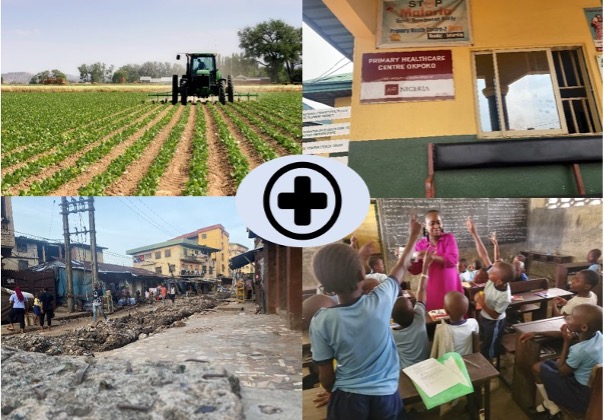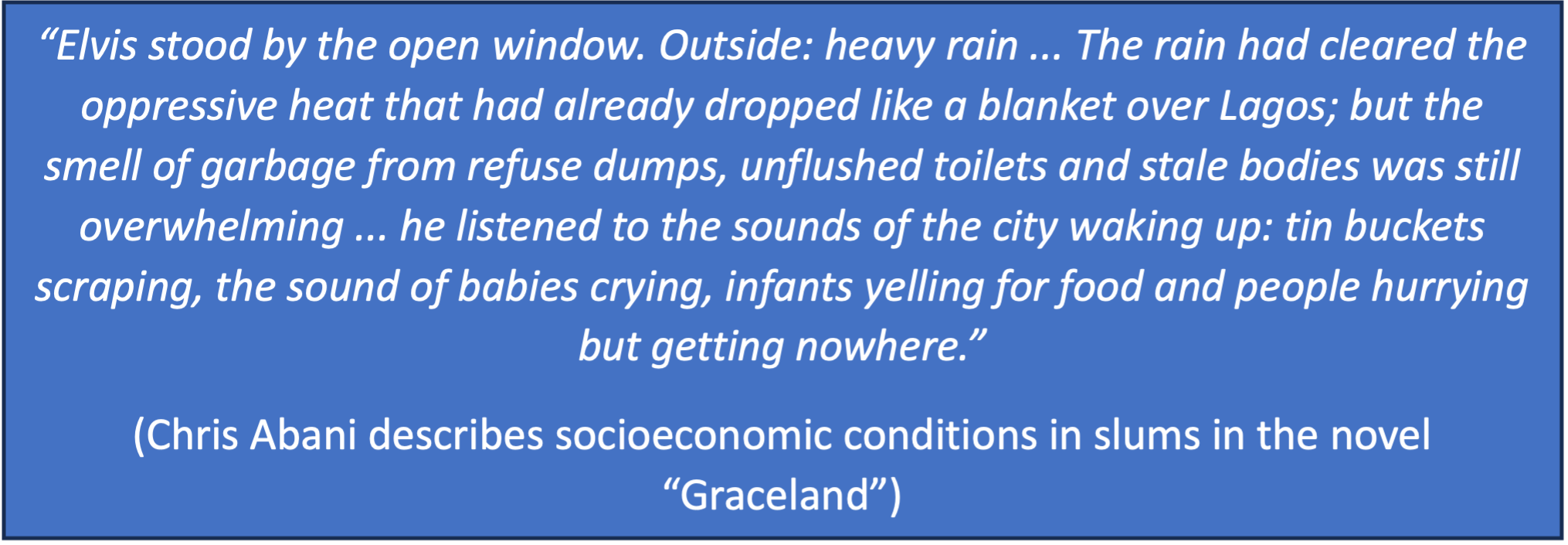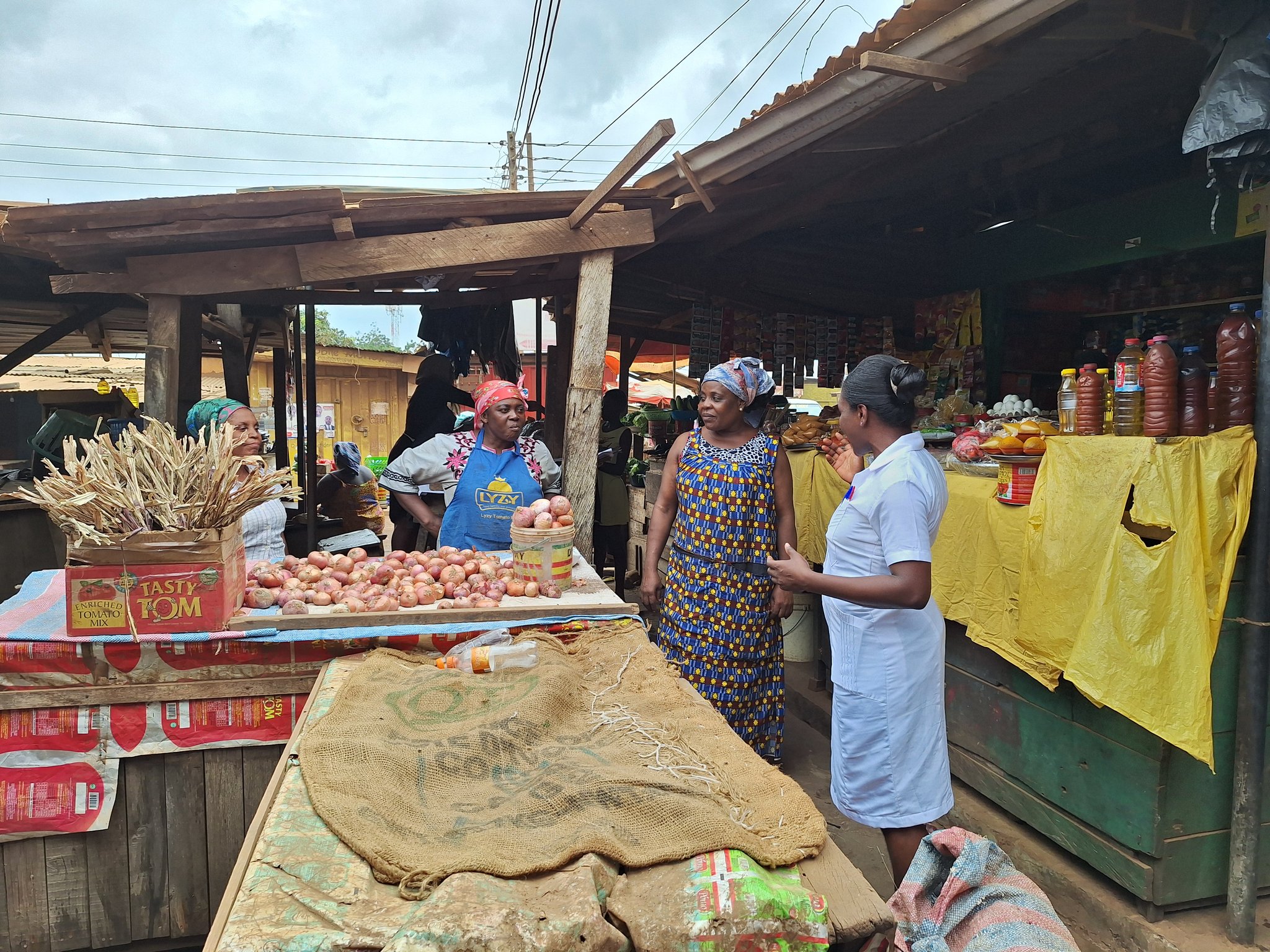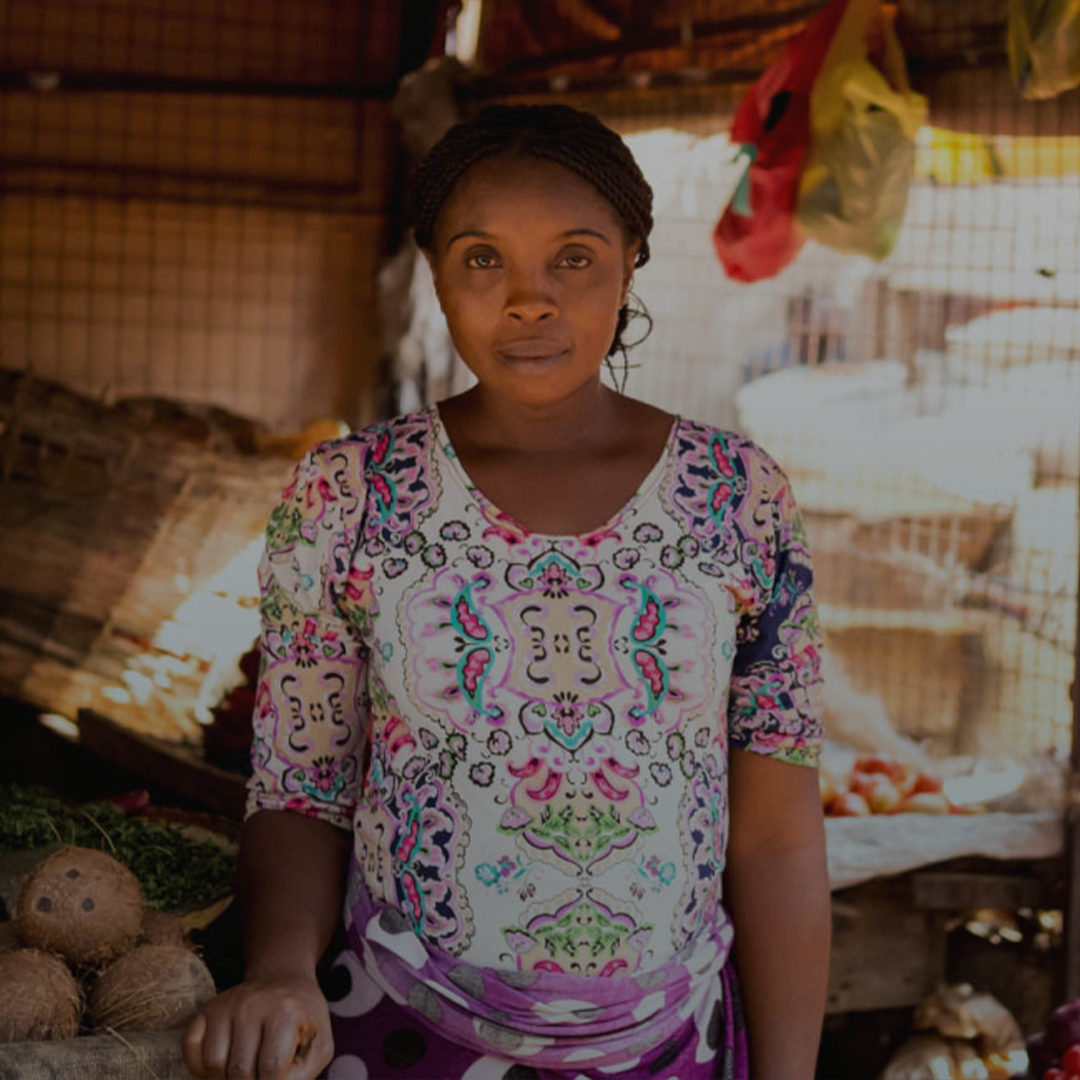
NIGERIA
Mainstreaming health in all sectors

NIGERIA
Mainstreaming health in all sectors

Mainstreaming health in all sectors to address communicable diseases, non-communicable diseases and maternal and child health issues in urban areas: discrete choice and political economy analysis of education, agriculture and environment sectors

ABOUT THIS PROJECT
The conditions in the environments where people are born, live, learn, work, play, worship, and age, are central to health and wellbeing. These conditions are referred to as ‘social determinants of health’ (Healthy People 2030). Social determinants of health (SDH) account for between 30-55% of health outcomes.
Although experiences about social determinants of health are unique to contexts, urban slums are considered the most multidimensionally deprived clusters. Literature has repeatedly reported that urban slums bear the highest burden of preventable communicable diseases. There is also evidence of an increasing prevalence of non-communicable diseases such as cardiovascular diseases, cancers, and respiratory diseases in urban slums. This is particularly harrowing, considering the rapid rate of urbanization and urban slum formation.
Disease burden in urban slums is attributed to poor living conditions, illiteracy, low health literacy, dietary challenges, and poor access to quality healthcare.
A ‘whole-of-system’ approach to good health and wellbeing is the current global best practice. This entails “mainstreaming health in all policies, and mainstreaming health-related comparative advantages of other sectors into the broader health systems”.
Consequently, Nigeria’s current health strategic plan (2023 to 2026) proposes a sector-wide approach of multi-sectoral involvement to drive the achievement of positive health outcomes and improved health status for the people. However, decision-makers and implementers need evidence of feasible models for implementation of multisectoral actions for the prevention of communicable and non-communicable diseases.
Our Approach
The Health Policy Research Group, University of Nigeria, will work with policymakers and decision-makers across health, education, agriculture, and environment sectors and with civil society organizations/organized private sector to generate evidence that decision-makers and implementers can use for setting priorities, developing interventions and effectively implementing a sector-wide approach for the prevention of communicable and non-communicable diseases in urban slums.
The project will be guided by the tenets of the “Health in All Policies”, which are (a) Consistency with the health and wellbeing goals of the SDGs (b) Being opportunity-driven by building strategies into policy windows (c) Pursue co-benefits and shared goals across sectors (d) Building on what already exists, and (e) Build a coalition of Health in All Policies (HiAP) champions.
Nigeria’s Health Sector Renewal Investment Initiative (HSRII) which is the national roadmap for achieving an effective health system in Nigeria through a sector-wide approach provides an opening for research evidence to inform health decision-making. Although the policy is not emphatic about urban health, this project will intensify calls for attention to the health of deprived slum dwellers, who dominate Nigeria’s fast-paced growing urban cities.
Research tools like discrete choice experiment, political-economy analysis, and co-creation will be used to generate evidence for designing an effective multisectoral response to addressing communicable and non-communicable diseases and maternal and child health concerns affecting urban slum population in Nigeria.










